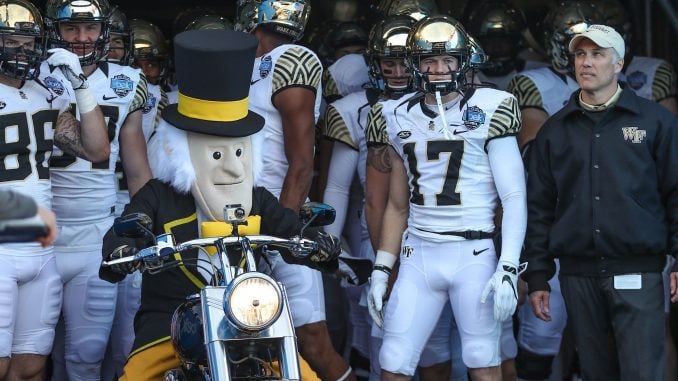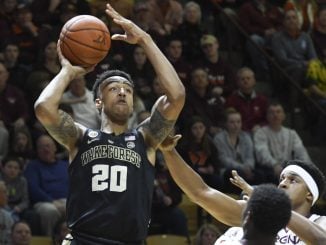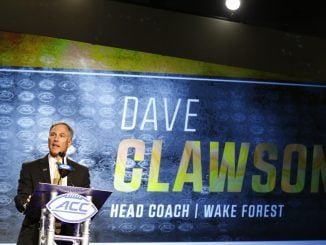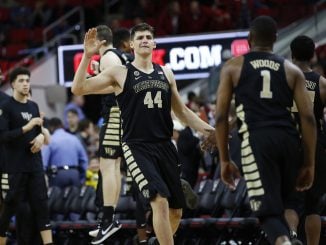
Dave Clawson didn’t write the playbook on how to breathe life back into foundering college football programs. He’s just figured out how best to put the plan into action.
It’s a blueprint that helped the 50-year-old New York native turn around programs at Fordham, Richmond and Bowling Green before being hired to replace Jim Grobe at Wake Forest in December 2013.
Clawson’s reputation as a reclamation project specialist has only been enhanced through his work with the Deacons. After starting his tenure with back-to-back 3-9 seasons, Wake has gone to two straight bowl games and has built a foundation for future success through its coach’s tried-and-true process of recruiting, player development, discipline and patience.
That process is on schedule to reach its fruition in 2018, which is why the North State Journal staff has projected Clawson as next year’s state Coach of the Year.
“They weren’t very good the first year or two and then made a nice jump last year,” Clemson’s Dabo Swinney said before his team met the Deacons back in October. “It just takes a little while of kind of doing it the right way, and I think (Clawson) is doing it exactly the right way.
“I have a great appreciation for teams when I watch them and I see buy-in and I see heart and I see passion and I see toughness and I see really, really good coaching. All of those things are on display when you watch these tapes with Wake Forest.”
As with any rebuilding situation, a key ingredient to the Deacons’ rise has been an upgrade in talent.
But while Clawson and his staff have succeeded in attracting a better, more athletic caliber of player to Winston-Salem — including game-changers such as wide receiver Greg Dortch, running back Arkeem Byrd and defensive back Essang Bassey — that’s only part of the winning equation.
Equally important have been the changes they’ve brought about in the attitude and work ethic of their players, especially in the weight room and on the practice field, and the trust they’ve built that the process was working even when the results weren’t always evident on game days.
“You first start seeing the players get stronger,” Clawson said. “Then you see them running faster 40s and then their GPAs go up and they miss less class. There just becomes an accountability in your program that carries over to Saturdays. They block the right rusher, they blitz the right gap, cover the right person. We’re a (program) that needs to do things right.”
Clawson’s confidence in his ability to reverse the Deacons’ fortunes after five straight losing seasons wasn’t based on blind faith.
It came from experience.
At Fordham, he took a team that went 0-11 in his rookie season of 1999 to a winning record in Year 3 and a spot in the FCS playoffs the season after that. He followed the same pattern at Richmond by going from 3-8 to 11-3 in just four seasons before leading Bowling Green to 10 wins and a Mid-American Conference championship three years after bottoming out at 2-10.
Clawson averaged 3.25 wins in each of his first two seasons at his previous stops before jumping up to 6.0 wins in Year 4.
It’s a pattern he followed almost to the number at Wake, where his 2016 team went 7-6 and then 8-5 this season after beating Texas A&M 55-52 in the Belk Bowl.
Even though his Deacons play in the same Atlantic Division as ACC powers Clemson and Florida State, Clawson has made it clear that that his goals are set higher than just winning records and minor bowls.
With a solid nucleus of players returning, including an experienced quarterback in Kendall Hinton, a new indoor practice facility and a manageable nonconference schedule, Wake is poised to make the transition from a young, building program to a mature, consistent contender.
“We’d been 3-9, 3-9, then to finally go to that bowl game was something that gave us confidence,” Clawson said. “It was like, ‘Here we go, it’s the start of a new era.’ For us it wasn’t like our end goal to just make a bowl game, We want to win an ACC championship and this was just a catapult to these next goals.”



